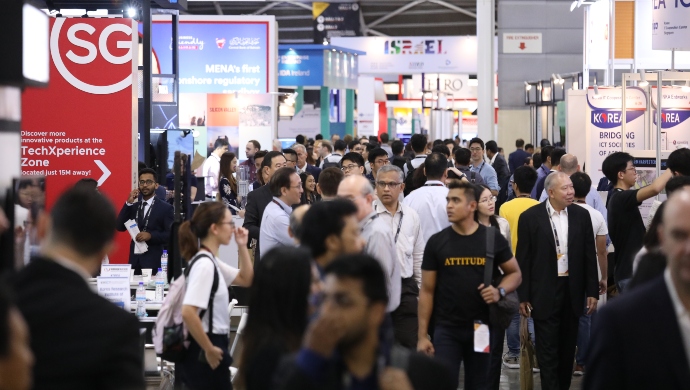
Singapore Fintech Festival has become the launchpad of National AI Strategy by the country’s government. The initiative was announced by Deputy Prime Minister Heng Swee Keat at Singapore FinTech Festival (SFF) x the Singapore Week of Innovation and TeCHnology (SWITCH) Conference.
The new strategy plans out how Singapore is set to develop and use AI to transform the economy and improve peoples’ lives.
Heng also added that the government is deploying AI on a national scale. “The government has committed more than S$500 million to fund AI activities under the Research, Innovation and Enterprise 2020 (RIE2020) plan,” he said.
The launch of the latest national AI strategy targeted at developing the AI ecosystem in Singapore is a part of the nation’s ongoing Smart Nation initiative. Singapore will embark on the plan by kickstarting projects in key high-value sectors and building a holistic AI ecosystem.
The National AI Strategy has three objectives that include Singapore becoming a global hub for developing, test-bedding, deploying, and scaling AI solutions, as well as learning how to govern and manage the impact of AI.
Also Read: How AI is changing mobile advertising in 2019
This, Heng noted, also includes putting people at the heart of all endeavours. “This means taking a human-centric approach to the application of technology, and ensuring workers are skilled in the use of new technology,” he explained.
Singapore, for instance, aims to train 25,000 professionals in basic AI coding and implementation by 2025.
According to an article by Channel News Asia, more initiatives tapping on AI technologies, such as machine learning and computer vision, are in the pipeline over the next decade, reflected in five projects unveiled, covering the areas of transport and logistics, smart cities and estates, healthcare, education, as well as safety and security.
Smart cities and estates
In this sector, AI will help to ensure more seamless and efficient municipal services. More from Channel News Asia’s article, it says that apart from the chatbot, there are also plans to deploy sensors and AI algorithms to predict maintenance needs in public housing estates by 2025.
Education
AI-enabled automated marking system for English will be piloted next year with selected primary and secondary schools, before the launch in 2022. It will be able to assess open-ended student responses, such as essays, and provide quick feedback – which can be helpful for teachers.
Singapore can also expect a more personalised education through an AI-enabled adaptive learning system, which uses machine learning to tell how each student responds to learning materials and activities, that will be trialed through online learning portal Student Learning Space (SLS) for specific topics in Math, starting with upper primary and lower secondary levels. The pilot with selected schools will be held by 2022, with the launch in 2025.
Chronic diseases
The Singapore Eye LEsioN Analyser (SELENA+), which analyses retinal photographs to detect major eye diseases, will be rolled out for diabetic retinopathy screening here in three years’ time.
Its capabilities will be extended to develop a predictive risk assessment model for cardiovascular diseases by 2025.
AI can be used to analyse clinical and genomic data, medical images, and health behaviours to better assess the risk profile of individual patients, allowing for better prevention and care management, he added.
Border clearance operation
Singapore will have a totally automated immigration clearance for all travelers, including first-time social visitors, by 2025.
Singaporeans and departing visitors may be able to experience an easier immigration clearance, without the need to present their passports, said the National AI Strategy document.
Transport and logistics
The fifth project will look at ensuring intelligent freight planning with the building of a common and trusted data exchange platform by 2022, among others.
As a supporter of Singapore’s technology ecosystem and digital economy, Alibaba’s Chief Technology Officer and President of Alibaba Cloud Intelligence, Jeff Zhang, weighed in on the initiative.
Also Read: Demystifying artificial intelligence: Breaking down common AI myths
”The launch of the National AI Strategy further affirms our decision to work closely with Singapore to build its digital economy. Singapore has consistently demonstrated its foresight and tenacity to fulfill the nation’s objectives, as demonstrated in its strong talent base and world-leading research institutions.”
“We have subsequently embarked on partnerships with A*STAR, the National University of Singapore, and the Nanyang Technological University to expand AI ecosystems across advanced manufacturing, fintech, retail, tourism, and smart city management under the Smart Nation initiative,” said Zhang.
Zhang added that the launch of the National AI Strategy places Singapore to harness the transformative potential of AI and data intelligence to empower industry across sectors.
Also Read: Building trust in Machine Learning and AI in digital lending
The group vice president at Oracle Financial Services, Venkatesh Srinivasan also chimes in, sharing its latest joint research with PwC
“It’s estimated that 71 per cent of SMEs are expected to adopt open banking by 2022. With more and more SMEs demanding rapid funding from banks, AI plays a critical role in drastically reducing origination turn-around time for SMEs.”
“When data is harnessed through AI and analytics and enabled with the right APIs, banks will become empowered with insights and agile processes to improve SME experiences,” said Srinivasan.
Other initiatives also announced on Wednesday include the launch of an AI makerspace – a new national platform to help start-ups, and small- and medium-sized enterprises to get started on their AI journey with pre-built AI solutions and others.
–
The post Government reveals Singapore’s National AI Strategy, welcoming AI-fueled tech future in various sectors appeared first on e27.